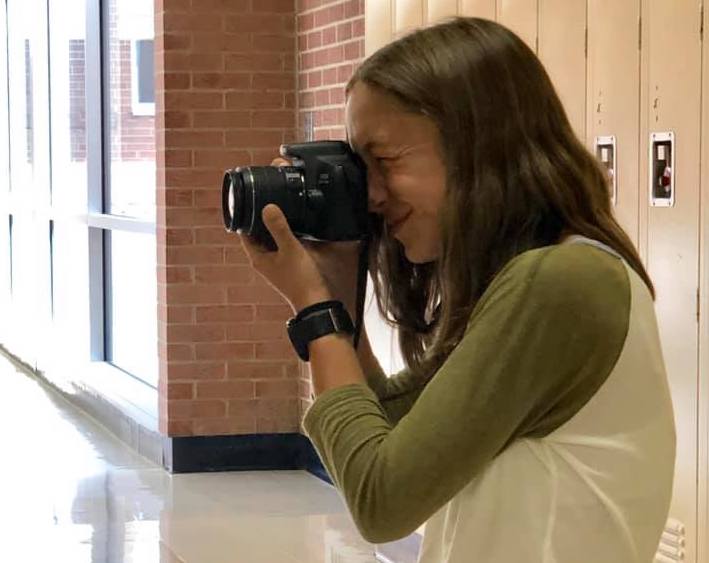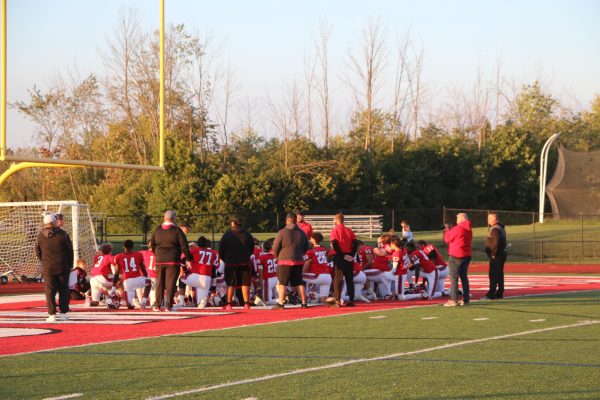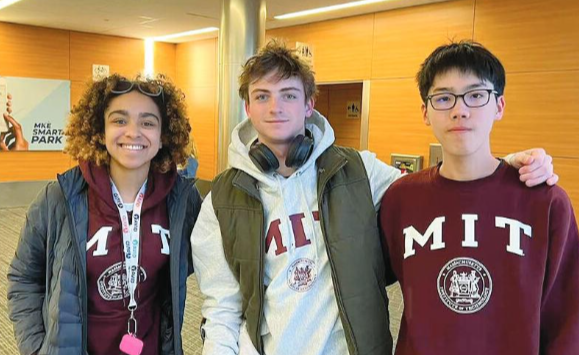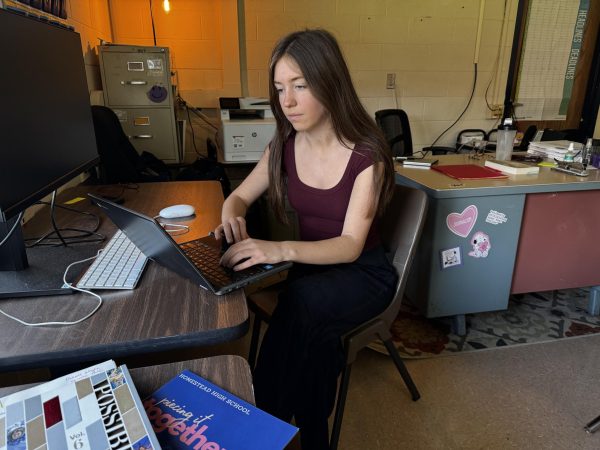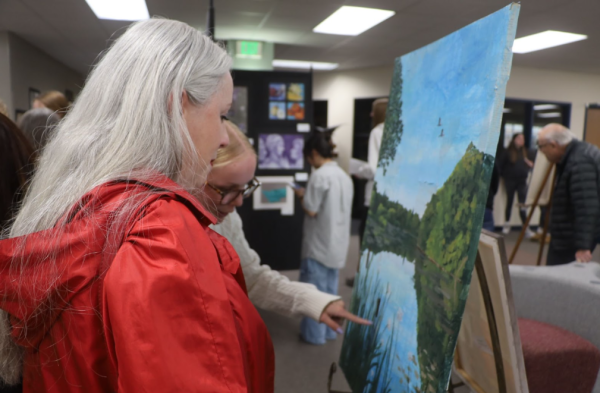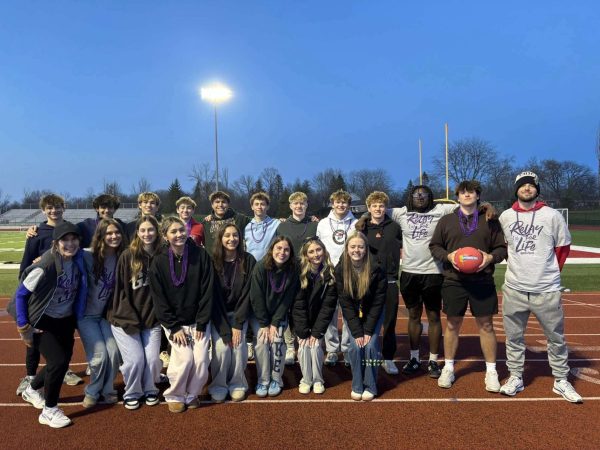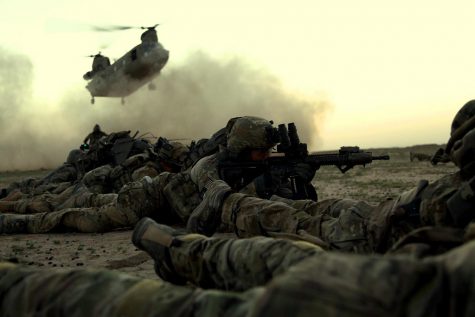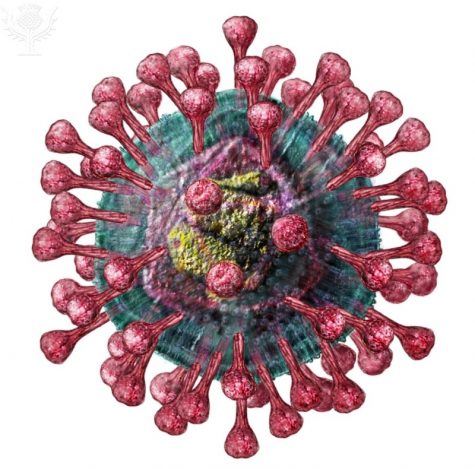Student scoops national press on Ukraine story
Student journalists across the country are trained to practice ethical journalism in their journalism courses.
The New York Times. The Washington Post. The Chicago Tribune. The Los Angeles Times. Every single nationwide news outlet has broken shocking stories, from political affairs to small town heroes. But it was a 20-year-old student from Arizona Student University who uncovered the real truth about a secret running through the university connected all the way to the White House.
September 26. A daily morning routine is held between the editors of the school paper, The State Press. Andrew Howard, 20-year-old student and co-managing editor, sits in the room as he hosts a conversation with the editor in chief, talking about national news. Kurt D. Volker, executive director of the McCain Institute, a think tank in Washington that is run by ASU and State Department’s special envoy for Ukraine, is brought to light. His current affiliation with the Trump Administration has made for talk, and Howard begins to search for his whereabouts for a story.
What Howard soon learned is that Volker had recently left his position working alongside the President, and he would be the first to break the story.
“I’m not sure we ever expected to get the scoop that we did,” Howard said to The New York Times.
Through his research about the resignation, Howard came into contact with an unnamed school official that confirmed the news. The journalist wrote that Volker had resigned after a number of reports surfaced of Trump’s encouragement for Ukraine’s president to investigate former Vice President Joseph Biden Jr, which sparked an impeachment inquiry.
Howard reported many activities on Volker, including that he had “ helped organize meetings with Trump lawyer Rudy Giuliani and Ukrainian officials” and “… that Volker went to Kiev, the capital of Ukraine, to help guide Ukraine officials on how to handle Trump’s demands.”
Howard’s story hit the State Press a little after 6:15 pm on September 27th. Howard was sitting in another newsroom at the time, The Arizona Republic, and had no idea how fast the story would begin to get attention.
“None of us [expected it to go viral]. We were just trying to do our jobs and get it out as quickly as possible,” Howard told Teen Vogue.
Every year, thousands of stories pop up on the web from school journalism programs. Topics including school shootings all the way from Douglas in Parkland, Florida to Santa Fe in Texas touch the hearts of thousands. Stories covering mental health, sexuality and personal identity, political affiliations and worldwide conflicts pour out from student publications, giving these individuals a platform for expression and creation.
“My philosophy is that there is no such thing as student journalists. Anyone trained to practice ethical journalism is a journalist,” Rachel Rauch, English and journalism teacher, said.
Students know these issues first hand, making these stories so much more personal and intriguing to the readers. Alongside their own experience, these kids have the will and motivation to uncover breaking news, earning the same credibility and respect as major news outlets.
“Student journalism is important because young adults are the future of journalism. When we are taught how to be journalists at a young age, we know how to spread unbiased information in the future and deliver the truth when it’s needed,” Ava Wojonowski, senior co-editor of Highlander Publications, said.
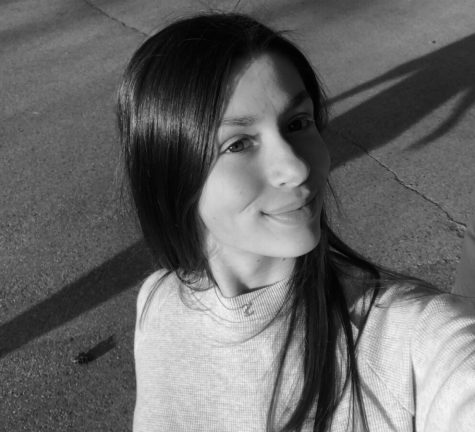
Sasha Shapsis is a senior at Homestead, and this is her third year on Advanced Publications. In room 405, she’s busy indexing yearbook, taking photos,...

